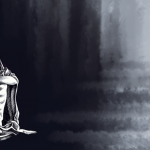
What is Relational Trauma?
Different Types of Trauma

Photo credit: Rodnae Productions
When most people think of trauma, what usually comes to mind are the negative emotional and psychological effects that horrific events such as war, abuse, or natural disasters have on survivors. The diagnosis of post-traumatic stress disorder (PTSD) has made its way into the public consciousness, due in large part to the growing recognition of the plight of combat veterans and first responders. While we have made significant progress in our understanding of trauma in recent decades, we still have a long way to go in recognizing the pervasiveness and diversity of traumatic experiences that people endure and are affected by in everyday life.
PTSD is one particular way that the effects of trauma can manifest, but it is not the only way that trauma can show up in people’s lives. There are more widespread forms of trauma than the “capital T” traumas that are readily acknowledged as being caused by life-threatening events, and there are many more ways that trauma can affect people than those captured by the symptom list in the PTSD diagnosis. Relational trauma, in particular, is a largely underacknowledged form of trauma that is, unfortunately, a virtually universal part of the human experience.
[perfectpullquote align=”full” bordertop=”false” cite=”” link=”” color=”” class=”” size=””]Relational trauma can be defined as the adverse, long-term effects that occur as a result of certain negative interpersonal relationship experiences.[/perfectpullquote]Not all negative relationship experiences are traumatic; there are many negative interpersonal events that happen in people’s lives that soon become nothing more than unpleasant memories. There are some relational experiences, however, that do leave lasting marks on the psyche of human beings. And while some of the types of events that cause relational trauma may seem relatively benign in the moment to an outside observer, these adverse experiences have the power to alter the course of our lives in the long-term.
We Are Relational Beings

Photo credit: Monstera Production
Human beings are fundamentally social animals. We are hardwired for close attachment since infancy; our survival literally depends on our early attachment figures’ (usually parents) ability to care and provide for us. We have an innate need to feel that we belong in our families, peer groups, communities, and the world at large. We are relationship-seeking beings. There is a growing body of research that suggests that the need for secure attachment is as vital to the healthy development of human beings as adequate nutrition. Interpersonal relationship experiences are not only vital to human development and survival, but they are one of the main sources of great happiness and fulfillment – or sorrow and heartache – for most people.
Even more core to the human experience, our very sense of selfhood is shaped by relational experiences. From the beginnings of individuation of an infant from its mother, to the way that society relates to its elders, our experience of ourselves and our lives is shaped in large part by how we are related to by others. Particularly in our formative, developmental years, we form the basic building blocks of how we conceptualize ourselves as individuals. We learn what works and doesn’t work to get our needs met based in large part on feedback from the world. We model which emotions are appropriate to express and which are to be hidden, suppressed, or unacknowledged. More profoundly, a child learns over time which parts of herself are met with approval (and should therefore be prized and expressed) and which parts are met with disapproval (and should therefore be condemned or ignored).
Relational Trauma
Relational trauma can be obvious and overt, such as in cases of physical abuse and sexual assault; but it can also be more subtle, such as in cases of persistent bullying, social exclusion, or childhood emotional abuse and neglect. It can affect the expression of our personalities, our sense of safety in the world, our subsequent relationships, and ultimately our health and sense of well-being. However, the connection between such trauma and the challenges that a person experiences as a result are not always apparent.
As with all forms of trauma, what is traumatic for one individual may not be traumatic for another. This is because trauma is defined not only by what happens to us, but by how what happens to us affects us: the meanings we ascribe to what happens to us, the ways we learn to survive and cope with our trauma, and how these experiences change our nervous systems and are stored in our bodies. The severity and extent of traumatization depends on a multitude of factors; our genetic predispositions, developmental vulnerabilities, levels of social support, and socioeconomic status all contribute to how our lives are influenced by adverse relational events.

Photo credit: Mikhail Nilov
For better or for worse, formative and persistent relational experiences have the power to shape the way we relate to ourselves, others, and life itself. [perfectpullquote align=”full” bordertop=”false” cite=”” link=”” color=”” class=”” size=””]Relational trauma shifts the ways we perceive and interact with ourselves, others, and the world as we attempt to make sense of our experiences, ensure our survival, and get our needs met.[/perfectpullquote]
A child who has been repeatedly bullied may end up with a part of him becoming a harsh “inner bully” whose job it is to keep him meek and small to avoid further negative attention – and in doing so inadvertently cripple his self-esteem and contribute to symptoms of depression. A person who has experienced acts of racism or other forms of unjust discrimination may develop an increased hypervigilance against such threats, finding it difficult to trust other people and feeling elevated levels of social anxiety. There are myriad ways that trauma occurs and manifests in the lives of human beings.
Relational Healing and Growth
Much awareness can be gained by reflecting on our own past experiences and how they may be affecting us in the present. But even if the impact of relational trauma in one’s life is acknowledged, it’s not always clear what to do about it. Fortunately, as much as relational experiences have the capacity to hurt us, they also have the capacity to help us heal and grow.
Psychotherapy can provide us with one such avenue for healing. In the context of a safe therapeutic relationship with a skilled therapist, we can learn how to better navigate and recover from the effects of relational trauma in our lives. We can begin to practice different ways of relating to others in the here-and-now of the therapeutic relationship itself. In addition, we can be guided to learn different ways of relating to our experiences: our thoughts, emotions, memories, bodies, and parts of ourselves.

Photo credit: Cottonbro
We can create a space in which the process of healing and unburdening the legacy of our traumas can occur by adopting a mindful stance of curiosity and compassion toward ourselves and our experience (this stance, in and of itself, can take some work to cultivate). In doing so, we not only have the opportunity to improve our own lives, but are less likely to perpetuate patterns of relational trauma onto others.



Oh, this is a great summary of relational trauma and compelling in the way you describe how we may heal. It is only when I began to understand my own trauma and ways I would sabotage relationship through a relational frame that real profound change started to unfold in a natural and deep way. Thanks for taking this stance to help others on the path to healing and growth through your practice.
Thank you for sharing relational trauma with us.
Great article and inviting for us all to take a look at it, definitely important to work with someone like yourself who understands how to navigate and heal these traumas.
The way you’ve provided practical tips and guidance for identifying and seeking help for relational trauma is incredibly helpful for anyone struggling with the effects of trauma in their relationships. Your article is a great resource for increasing awareness and understanding of this important issue, and for providing support and guidance for those affected by it. Thank you for sharing your knowledge and insights!